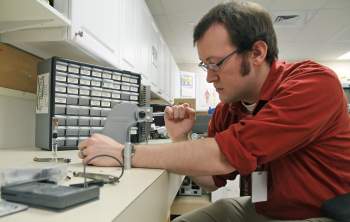I recently completed interviews with two members of the Arizona Medical Instrumentation Association (AZMIA) for the upcoming Focus On feature in the January issue of 24×7. During the interviews, both people independently cited members’ lack of interest in the association as the biggest challenge facing the AZMIA. To combat this, they’ve made an effort to increase the educational offerings in their market, something that they don’t believe there’s enough of currently.
This agrees with your responses to the 2010 24×7 Compensation Survey:
| The greatest number of respondents to the survey, 37%, reported no opportunities for training through their employer in the past year, up from 2009 (36%) and 2008 (29%). The remainder were fairly evenly divided among the amount of training received, which ranged from 1 to 20 hours (19%), 21 to 40 hours (21%), and more than 40 hours (23%)…
Lacking classroom and lab opportunities, many respondents turn to magazines (33% of respondents reported using these sources for job-related information) and the Internet (40%). Fewer are attending meetings and conferences (15% this year versus 17% in 2009); and a small number utilize journals (8%) and “other” sources, such as vendor and on-the-job training (4%). |
Training is the cornerstone of advancing your career, but it appears that employers are less likely to provide the service in these tough economic times. Compounding the problem seems to be a lack of interest in local association offerings that are intended to fill this void.
In the AZMIA’s case, they’ve found it beneficial to tailor their educational sessions to the members’ needs and wants. Members of the association survey their individual staffs in an effort to stay aware of the trends and desires of the industry. But as a biomed, how do you communicate what training is most important to you, and where do you go to get it? Do you participate in your local association in an effort to promote the correct training? And as a leader of an association, what do you do to ensure that your members get precisely what they need?
Training is crucial, especially in this economy when hospitals forego capital expenditures and opt for in-house repairs. So what do you do to make sure you get what you need?




